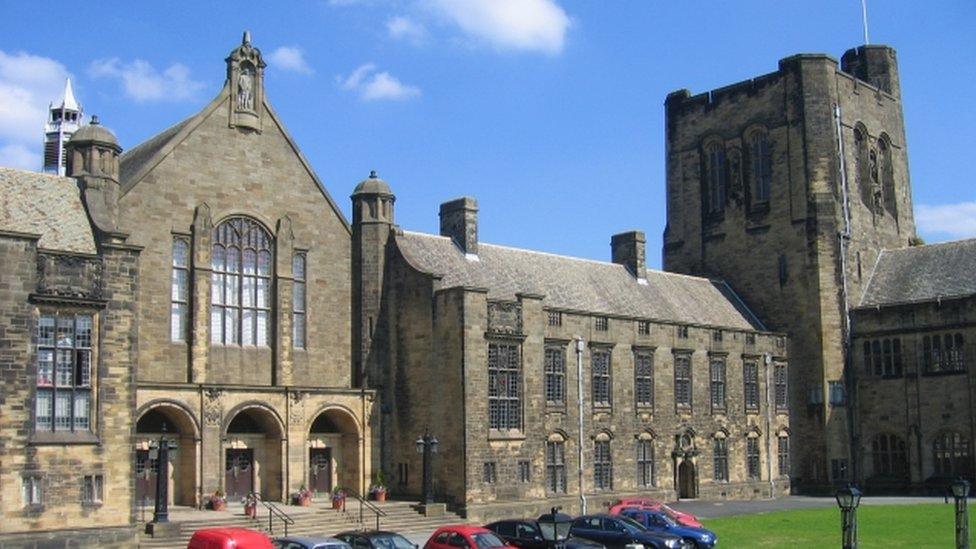'No confidence' in Bangor University bosses over job cut plans
- Published

There has been a university in Bangor since 1884
Bangor University staff have passed a motion of no confidence in their bosses over plans to cut 200 staff.
The university's management said it needs to save £13m after Covid's impact on international student recruitment.
Its current plans mean 120 support staff and 80 academic jobs are at risk, but Bangor's University and College Union has proposed a temporary pay cut on a sliding scale over two years.
The college said it was trying answer "unprecedented challenges".
But Prof Doris Merkl-Davies, Bangor UCU committee member and Bangor Business School UCU representative, said members were ready to fight for their colleagues' jobs.
"Staff morale is incredibly low. Even staff in schools with no redundancies, such as the Business School, feel that this is just a temporary reprieve," she said.
"'Nobody is safe,' they say. 'Next year it may be us.' This feeling has engendered a strong sense of solidarity."
'Collective sacrifice'
The union is proposing that those at the bottom end of the pay scale (earning £20,130) would take the smallest cut of 0.5%.
Meanwhile, top earners (managers earning over £114,000) would take the greatest cut (15%). This proposal alone could save between £5m and £5.4m, according to the union.
Members say they would accept this "collective sacrifice" in exchange for a pause in the current restructuring process, and a guarantee of no compulsory redundancies for the duration of the two-year period of the proposed pay cut.
Responding to the no confidence motion, a college official said: "Bangor University is actively and professionally dealing with the consequences of a global pandemic which has had a very direct impact on the university.
"We are currently in a consultation phase and are working with our staff to find solutions to the unprecedented challenges we face.
"Our priority is our students and staff, and to emerge stronger as one of the leading universities in Wales, as the research led university in north Wales playing a full part in the post-Covid economy and recovery in the region."
- Published25 October 2018
- Published8 October 2020
- Published11 September 2020